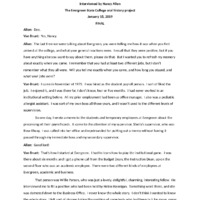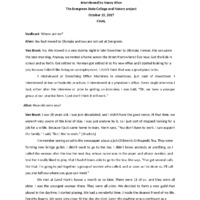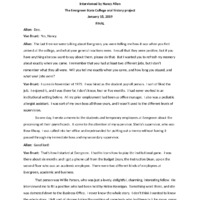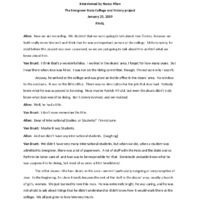Dee Van Brunt Oral History Interview
Item
- Identifier
- Title
- Date
- Creator
- Contributor
-
VanBruntDee
-
Dee Van Brunt Oral History Interview
-
October 15, 2017
-
January 18, 2019
-
January 25, 2019
-
Dee Van Brunt
-
Nancy Allen
Position: 694 (7 views)



